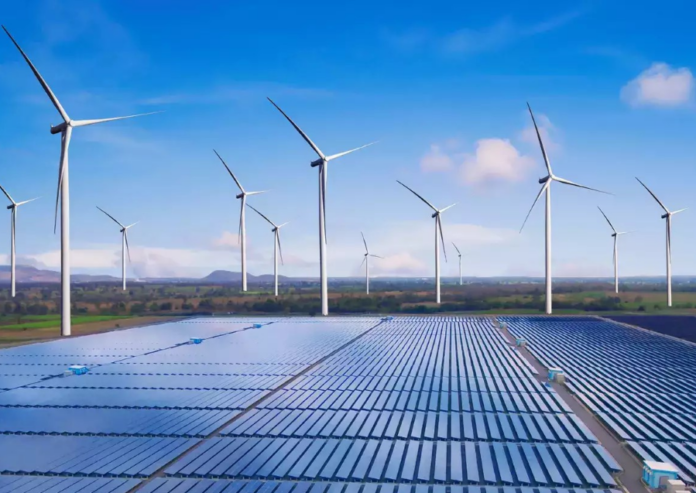As global leaders prepare for COP29, the urgency to address climate change while expanding electricity access to underrepresented regions has never been more pressing. To this end, Africa and Europe have launched the second phase of their joint sustainable energy research initiative, ushering in a new era of collaboration.
The Long-Term Joint EU-AU Research and Innovation Partnership on Sustainable Energy (LEAP-SE) was officially inaugurated on October 10, 2024, at the Politecnico di Milano in Italy. Building on the success of its predecessor, LEAP-RE, this initiative expands its focus from renewable energy to encompass broader sustainable energy solutions. Researchers and private-sector stakeholders from both continents are invited to submit funding applications for the initiative early next year.
LEAP-SE: A Path to Energy Resilience
LEAP-SE is a flagship program under the AU-EU High-Level Policy Dialogue (HLPD) on Science, Technology, and Innovation (STI). Its mission aligns with the HLPD’s Research and Innovation Partnership on Climate Change and Sustainable Energy (CCSE), which emphasizes equitable collaboration to mitigate and adapt to climate change.
This phase represents a strategic shift from traditional donor-recipient models to a co-funding framework, enabling Africa to take a stronger role in shaping research priorities. According to Tinyiko Ntshongwana, Deputy Director for Africa Multilateral Cooperation at South Africa’s Department of Science and Innovation (DSI), this marks a significant move toward building Africa’s capacity for manufacturing, industrialization, and intellectual property retention.
The LEAP-SE initiative’s €30 million budget is co-funded, with one-third coming from Horizon Europe, the EU’s flagship research and innovation program, and the rest provided by participating countries’ funding agencies and ministries. This funding model underscores a shared commitment to addressing climate change and energy access in a way that benefits both continents equitably.
Expanding Scope and Impact
While the first phase, LEAP-RE (2020–2025), focused narrowly on renewable energy, LEAP-SE (2024–2030) takes a more comprehensive approach. It aims to foster innovation in areas critical for the green transition, including:
- Renewable energy resource assessment and integration into sustainable energy planning.
- Lifecycle management and environmental impact of renewable energy components.
- Development of smart stand-alone systems and off-grid smart grids.
- Creation of sustainable processes for productive uses, such as agriculture and industry.
- Solutions for priority domestic needs, such as clean cooking and the cold chain for food and medicine.
- Advancement of green hydrogen production and utilization.
The initiative also plans to enhance technology commercialization, ensuring research outputs translate into real-world applications that drive both economic growth and climate resilience.
Addressing Africa’s Energy Challenges
Africa faces unique energy challenges, including a rapidly growing population and significant energy access deficits. While the continent is rich in renewable energy resources like solar, wind, and geothermal energy, it remains heavily reliant on raw material exports, leaving local economies vulnerable to global market fluctuations.
Nickson Bukachi Ongeri from the African Energy Commission highlighted Africa’s dual challenge of providing electricity to millions while supporting its economic growth. Countries like Nigeria struggle with frequent power outages, which hinder industrial productivity. However, success stories like Kenya’s geothermal energy sector demonstrate the transformative potential of renewable energy. Kenya’s model not only improves electricity access but also creates jobs and builds local expertise in clean energy technology.
Harnessing Science Diplomacy
LEAP-SE is a prime example of science diplomacy in action. It leverages scientific collaboration to address shared global challenges, fostering trust and mutual benefit. As part of the broader AU-EU Innovation Agenda, the initiative emphasizes co-created solutions tailored to Africa’s unique needs. This ensures that research outcomes are locally relevant and aligned with global climate goals.
The initiative is also poised to address pressing global priorities outlined by European Commission President Ursula von der Leyen, including renewable energy investment and green hydrogen development. These collaborative efforts pave the way for a stronger EU-Africa partnership ahead of the 2025 AU-EU Summit.
Building on Success
LEAP-SE builds on the solid foundation laid by LEAP-RE. In its first phase, the program established a network of 85 research partners across 33 countries, funded 31 projects, and facilitated knowledge-sharing workshops. These achievements have created a vibrant research community dedicated to advancing renewable energy solutions.
Looking ahead, LEAP-SE plans to increase the number of participating countries, secure broader funding, and accelerate the deployment of innovative energy solutions. By actively involving private-sector players and entrepreneurs, the initiative aims to create an ecosystem where sustainable energy research thrives.
The Road Ahead
LEAP-SE’s success hinges on its ability to blend cutting-edge research with practical applications, providing scalable solutions to Africa’s energy challenges. With its expanded focus and collaborative model, it has the potential to drive transformative change in sustainable energy development, fostering a greener and more equitable future for both continents.
The first call for project proposals is anticipated in January 2025, marking the start of a new chapter in global energy collaboration. Researchers, policymakers, and private-sector stakeholders alike are urged to join this ambitious initiative to shape the future of energy resilience and climate action.
















 The African Research (AR) Index is a comprehensive scholarly directory and database focused explicitly on journal publishers that publish and disseminate African research.
The African Research (AR) Index is a comprehensive scholarly directory and database focused explicitly on journal publishers that publish and disseminate African research.

